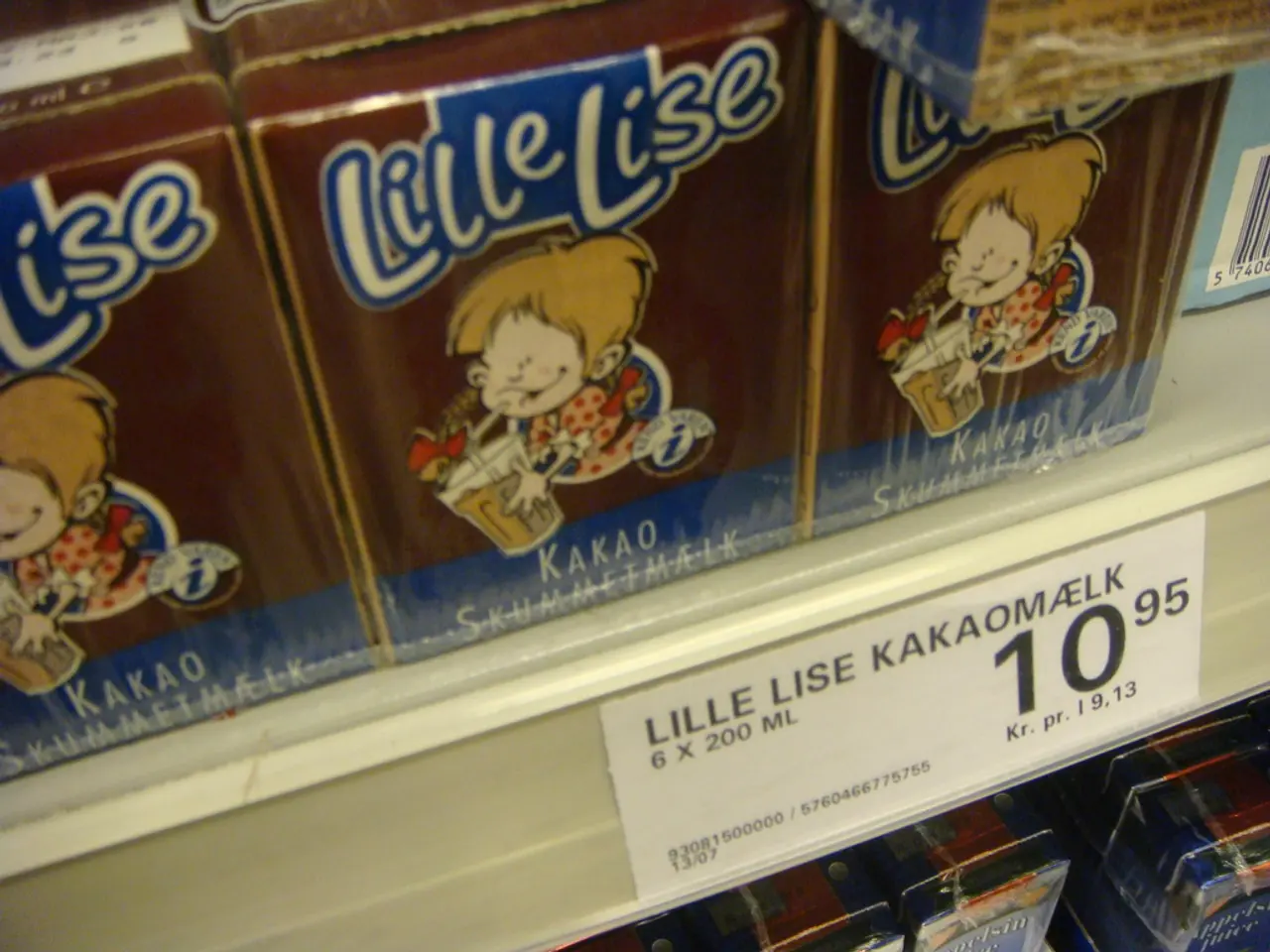Food products in Switzerland now required to display labels indicating their treatment methods
Switzerland Introduces First Mandatory Animal Welfare Labeling in Europe
In a groundbreaking move, Switzerland has become the first country in Europe to require explicit animal welfare labeling on food products of animal origin. The new regulation, which came into effect in July 2025, aims to increase transparency and empower consumers to make informed choices based on animal welfare considerations.
The legislation, finalised after several years of parliamentary debate and public consultation, applies to a wide range of products, including meat, milk, eggs, foie gras, and frog legs. From July 2025 onwards, shoppers in Swiss supermarkets began to see labels on animal products identifying whether the animals involved were subjected to practices considered cruel or painful.
Examples of such practices include the castration of piglets, dehorning of cattle, tail docking in pigs, and beak trimming in poultry. The wording must explicitly state the nature of the procedure to which the animal was subjected.
The new labelling system is a landmark step in European food policy, being the first to mandate consumer-facing labels explicitly stating when animals have undergone painful interventions without anaesthesia. The Federal Food Safety and Veterinary Office (FSVO) is responsible for overseeing the implementation of the new regulation.
Retailers will be obliged to mark products clearly on the packaging or on the shelf label for unpackaged goods. Producers and retailers have until 2027 to adapt their supply chains and labelling systems before full enforcement begins.
While Switzerland enforces stricter animal welfare laws compared to many other countries, authorities determined that consumers should be made aware when imported or domestically produced foods involve procedures not aligned with the country's high welfare standards. The measure guarantees a level playing field for Swiss farmers and foreign suppliers alike.
The introduction of this regulation reinforces Switzerland's position as one of the strictest countries in Europe regarding transparency in food production. Other European countries, particularly the UK, have shown signs of potential future adoption, but as of mid-2025, no other European countries have yet implemented mandatory animal welfare labels like Switzerland.
Within the European Union, animal welfare-related labeling generally relies on voluntary certifications or broader eco-labels such as the EU organic logo, which is mandatory but does not specifically address painful procedures or explicit animal welfare practices. While there are concerns about welfare standards in imported products and trade deals, there is no EU-wide requirement akin to Switzerland's mandate.
| Country | Mandatory Explicit Animal Welfare Label Required (Painful Practices) | Status as of 2025 | |--------------|---------------------------------------------------------------------|------------------------------------------| | Switzerland | Yes | First country to introduce; in force since July 2025[1][2] | | United Kingdom | No (advocacy and consultations ongoing) | Government considering proposals; no mandate yet[3] | | EU (Other) | No | Relies on voluntary labels and organic certification; no mandate[4][5] |
In conclusion, Switzerland leads Europe in mandating explicit animal welfare labels on animal-origin food products, while other European countries have not yet followed with similar requirements but show signs of potential future adoption. The Swiss initiative is a significant step towards increased transparency and consumer empowerment in the food industry.
[1] Swiss Federal Food Safety and Veterinary Office (FSVO) - Mandatory Animal Welfare Labeling Regulation [2] Swiss Federal Council - Press Release on Animal Welfare Labeling Regulation [3] Vegetarian Society UK - Call for Mandatory Animal Welfare Labeling in the UK [4] European Commission - Animal Welfare-Related Labeling in the EU [5] European Organic Certifiers - EU Organic Regulation and Animal Welfare Standards
Read also:
- Overweight women undergoing IVF have a 47% higher chance of conceiving naturally post-weight loss
- Bonsai Trees from Evergreen Species: Exploring Growth Characteristics & Distinct Qualities
- What temperatures may make walking your canine companion uncomfortable?
- Latest advancements in ulcerative colitis treatments: An updated look






